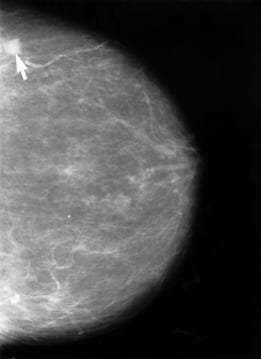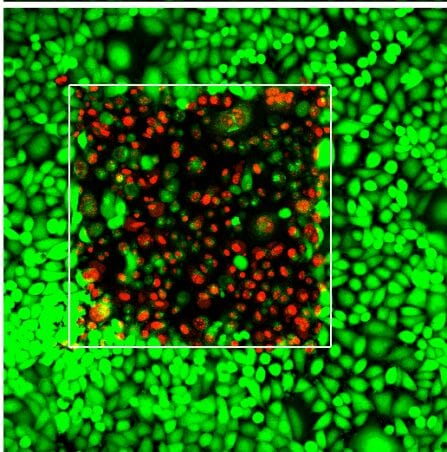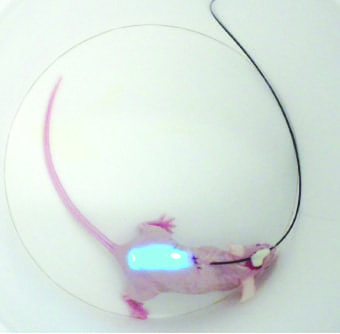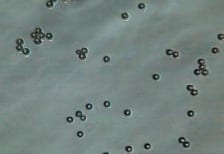
Pre-cancerous cells treated with a vitamin A derivative revert into non-cancerous cells.
A derivative of vitamin A, known as retinoic acid, found abundantly in sweet potato and carrots, helps turn pre-cancer cells back to normal healthy breast cells, according to research published this month in the International Journal of Oncology. The research could help explain why some clinical studies have been unable to see a benefit of vitamin A on cancer: the vitamin doesn’t appear to change the course of full-blown cancer, only pre-cancerous cells, and only works at a very narrow dose.
Because cells undergo many changes before they become fully aggressive and metastatic, Sandra V. Fernandez, Ph.D., Assistant Research Professor of Medical Oncology at Thomas Jefferson University, and colleagues, used a model of breast cancer progression composed of four types of cells each one representing a different stage of breast cancer: normal, pre-cancerous, cancerous and a fully aggressive model.
When the researchers exposed the four breast cell types to different concentrations of retinoic acid – one of the chemicals that the body converts vitamin A into – they noticed a strong change in the pre-cancerous cells. Not only did the pre-cancerous cells begin to look more like normal cells in terms of their shape, they also changed their genetic signature back to normal. Dr. Fernandez’s pre-cancerous cells had 443 genes that were either up or downregulated on their way to becoming cancerous. All of these genes returned to normal levels after treatment with retinoic acid. “It looks like retinoic acid exerts effects on cancer cells in part via the modulation of the epigenome,” says Fernandez.
“We were able to see this effect of retinoic acid because we were looking at four distinct stages of breast cancer,” says Dr. Fernandez. “It will be interesting to see if these results can be applied to patients.”
Interestingly, the cells that were considered fully cancerous did not respond at all to retinoic acid, suggesting that there may be a small window of opportunity for retinoic acid to be helpful in preventing cancer progression. In addition, the researchers showed that only one concentration of retinoic acid (about one micro Molar) produced the anti-cancer effects. Lower concentrations gave no change, and higher concentrations produced a smaller effect.
The Latest on: Vitamin A
[google_news title=”” keyword=”Vitamin A” num_posts=”10″ blurb_length=”0″ show_thumb=”left”]
via Google News
The Latest on: Vitamin A
- Why Vitamin B is essential for a happy and healthy dogon April 28, 2024 at 3:12 am
Vitamin B is crucial for maintaining a healthy metabolism and energy levels in dogs. It also supports their immune ...
- An apple a day really can help keep the doctor away. Here's how.on April 27, 2024 at 2:01 am
Can an apple a day keep the doctor away? Any fruit or vegetable - as part of a well-balanced diet - can help to keep certain medical issues at bay.
- Evion's Vitamin E Cream in a Brand-New Avataron April 26, 2024 at 10:37 pm
Concerned about maintaining your skin's hydration amidst the scorching summer heat, it's time you shield your skin against the season's harsh elements and embrace sun-kissed days with confidence and ...
- Bethenny Frankel uses this 'hydrating, plumping, brightening' vitamin C serum every day — it's on sale for just $17on April 26, 2024 at 8:35 am
Over 4,000 Amazon shoppers have given Bliss Bright Idea Vitamin C + Tri-Peptide Facial Serum a five-star rating, with many highlighting the pleasant scent and texture of the serum as well as the ...
- Can vitamin D help fight cancer?on April 25, 2024 at 9:45 pm
When his colleague Evangelos Giampazolias, now at the Cancer Research UK Manchester Institute, discovered that switching off the gene which provides instructions to make the aptly named vitamin ...
- The Best Time To Take Vitamins, According To Expertson April 25, 2024 at 5:30 pm
Magnesium: Best taken 15 minutes before bedtime, for better sleep and relaxation. Iron and vitamin C work well together: vitamin C when taken with iron, enhances its absorption. And according to Dr ...
- The Best Vitamins for Teens 2024, According to Pediatricianson April 25, 2024 at 3:20 pm
So there may be a place for taking vitamins as a teen. Just know, downing a daily pill, gummy, or chewable isn’t a surefire ticket to your healthiest you, and that it does pose some risks (more on ...
- Vitamin D may balance gut microbiome to give cancer immunotherapy a booston April 25, 2024 at 12:30 pm
A new study in mice found that dietary vitamin D plays a role in balancing the gut microbiome and improving the way cancer immunotherapy works to fight tumors.
- Study finds vitamin D alters mouse gut bacteria to give better cancer immunityon April 25, 2024 at 11:00 am
Researchers at the Francis Crick Institute, the National Cancer Institute (NCI) of the U.S. National Institutes of Health (NIH) and Aalborg University in Denmark, have found that vitamin D encourages ...
- The Top Signs You Have a Vitamin B12 Deficiencyon April 19, 2024 at 6:00 am
Look for these warning signs of vitamin B12 deficiency. You could be experiencing both mental and physical symptoms.
via Bing News










